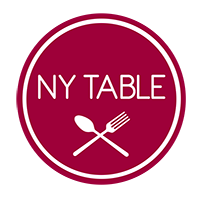
The book is nearly 600 years old, with fragile, brown pages full of curly writing describing cooking instructions in Latin. Marvin J. Taylor, curator for Food Studies and the Arts at New York University’s Fales Library, puts it gently back into a small custom-made cardboard box and stashes it on the shelf, one of 65,000 cookbooks stored in the library’s cookbook collection.
These books enable us to understand centuries of recipes. But what will happen in the next 100 or 1,000 years when more and more material is digital? Future generations might never know that avocado toast was a huge craze in the beginning of 21st century.
Thanks to the internet food writing is more plentiful than it used to be. But online content is vanishing at a tremendous speed. One study that tracked links shared in Twitter found out that one out of ten web pages didn’t work after a year. After two and a half years 27 % of the content was lost, the researchers Hany M. SalahEldeen and Michael L. Nelson from Old Dominion university find out in their study Losing My Revolution.
On the other hand, the study found that after two and a half years 41 percent of the material was properly stored in a web archive like the non-profit Internet Archive’s Wayback Machine – which means that Wayback contains content even if a site publisher has deleted it. But Wayback is not complete: it can only archive websites that allow web crawlers to pull out content automatically.
Storing online content poses numerous problems, according to Taylor because of volume and repetition. The question is how to preserve blogs when there can be new comments added to old posts every day. And even if text or photos can be saved, web page functionality can be an obstacle, especially if it’s dependent on privately owned software like Flash.
Copyright is also an issue. Anyone can store books: you just go to bookstore, buy a book and it is yours to save. But to scrape, or automatically pull, website content, and save it to your own computer can often be a violation of copyright and other laws especially if you share it with others online.
Taylor would love to archive all the restaurant reviews in the Zagat online guide, which are compilations of diners’ comments.
“But we have never gotten anywhere with them”, Taylor says. Fales Library has not been able to get permission from Zagat.
Taylor thinks Zagat content would illuminate important dining trends. “When did Thai food become more important than Chinese? No one eats Cantonese or Mandarin anymore,” he said, as an example of what the data could show.
Infatuation acquired Zagat last year and Michael Sinatra, vice-president of communications for the new owner, said that he cannot comment on conversations between the Fales library and the previous owner.
But there are some efforts to archive online food content. In collaboration with Archive-It, a subsidiary of the Internet Archive, Fales library collects blogs related to food and politics. University of Texas collects Mexican cooking blogs and San Jose State University collects blogs about bento boxes. The Library of Congress does a lot of online collection but none of that is food-related. And space is ran issue for big operators as well: the Library of Congress archived every Twitter tweet for years but gave up in the beginning of 2018, citing the massive volume as one of the main reasons.
Sarah Lohman, a culinary historian and former curator of food programming at Manhattan’s Tenement Museum, has noticed that certain types of food are considered to be so mundane that nobody bothers to write the recipe down. For example, Lohman would love to know more about funeral cookies that were passed out at funerals in 18th and early 19th century in America. But the practice was so common that people didn’t describe the ritual.
“It would be like saying today, ‘It was Christmas morning, so we opened the presents,’” Lohman said in an email.
That’s why Lohman thinks storing social media content would be important. “It provides documentation and gives context to social rituals.”
“There are so many different food cultures and the most written and well-documented is probably the gourmand world, the high-end foodies. But all of us have to eat”, Taylor says. He would be interested in following how recipes change over time — how a recipe released by a professional changes thanks to social media and everyday life.
What worries Lohman is the impermanence of digital material. She notes that the first ever commercial photographs, daguerreotypes from 1830’s, “are just as clear and bright as when they were first taken”, but that every form of photography after that has had a shorter archival life.
But bloggers themselves might not be that worried.
“I have honestly never thought about it,” blogger Beth Moncel of BudgetBytes.com writes in an email when asked about the survival of her blog posts for the next 100 years. “Honestly, I don’t think that is important to me. I appreciate that it is useful now.”
Tags: Beth Moncel, Marvin J. Taylor, Sarah Lohman, Zagat
Your Comments